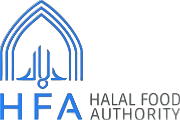Definition Of Halal
The word 'halal' literally means permissible- and in translation, it is usually used as lawful. Halal food means food procured, processed, and traded in compliance with Islamic Law.
The antonym to halal is haram, which means unlawful or forbidden. Haram means any object made or action which has no permission in Islamic Law, and which is proscribed, prohibited and forbidden. All the harmful substances (defined medically) for human health are haram.
The concept of halal and haram is defined in the Holy Quran (a revelation from Almighty God Allah) and is further supported by the teachings of the Final Prophet Muhammad (SAW) in Hadith.
The Holy Quran says:
"O’ you who have believed, eat from the good things which We have provided for you and be grateful to Allah if it is [indeed] Him that you worship." - Al-Baqara 2:172
“He has forbidden you what dies of itself (carrion), and blood, and the flesh of swine and that over which any name other than (that of) Allah has been invoked.” - Al-Baqara 2:173
"And eat of what Allah hath given you (for food) that which is lawful and wholesome, and fear Allah in whom ye believe." - Al-Maida 5:88
“O believers! Intoxicants, and game of chance, and idolatrous practices and divining (of the future through) arrows are abominations devised by the Satan. Shun it then! So that you may prosper.” - Al-Maida 5:88
The Ahadith of our beloved Prophet Muhammad (SAW) also provides information on this regard:
Abu Hurayrah (RA) reports that the Prophet of Allah (PBUH) said, “A time will come upon the people wherein a man will not bother what he intakes; whether from Halal source or Haram.” – Sahih Bukhari
When Haram is mixed with Halal, it ruins Halal as well. – Mishkat Sharif
The Halal Food Authority certification requirements are based on and fully complies with the major halal food standards such as GSO, UAE.S 2055, SMIIC-1, MS1500 & MUI HAS, which are derived from Islamic Sharia Law.
Halal requirements for food can be divided into the subjects of Meat and Non-Meat foodstuffs.
Meat slaughtering and Stunning
In general, all forms of stunning and unconsciousness of animals are disliked. However, for the sake of animal welfare (a concept greatly promoted in Islam) measures can be taken to calm the animal or/and mitigate the violence of large-size animals or/and overcome the issue of handling & controlling the bird/animal during the slaughtering process in a fast-paced slaughtering environment is permissible.
To achieve this, a low voltage shock can be used on the head to immobilize and make the animal insensitive to pain. The stunning parameters used are known not to kill the animal, must be reversible (animal achieves consciousness in minutes) and use for ‘stun to stun’, and not kill the animal. Any parameters used which results in death are strictly prohibited in Islamic slaughter.
Surah Al-Ma’idah, 5:3: Prohibited to you are carrion, (i.e. dead meat) and blood, and the flesh of swine, and what has been acclaimed to other than Allah, and the strangled, and the beaten (to death), and the toppled (to death), and the gored (to death), and that eaten by wild beasts of prey-excepting what you have immolated-and whatever has been slain on the altars (for the idols), and that you adjure division (i.e. by gambling with arrows or in any similar way) by divining: that is immorality.
Stunning through a non-penetrating device to the head, in a way that does it not kill the animal before its slaughter, is permitted, provided that the following conditions are adhered to: Animals shall remain alive during and after stunning and on slaughtering, which is marked with the post-slaughtering movement. If they are dead before slaughtering, they shall be deemed fatally beaten animals (Mawqouza). Any animal which dies before slaughtering for any reason shall be declared as carrion, not permissible to be consumed by Muslims.
The basic principles of halal (Zibah) slaughter can be summarised as the following:
- An animal should not be dead before slaughter
- A Muslim should perform the slaughter using a sharp knife (swift & single cut) severing the major veins, arteries & windepipe without decapitation
- Any flowing blood of the carcass should be completely drained (Surah Al- An'am 6:145)
- Choice of modern and in vogue method must be in line with Islamic principles and considered with absolute caution
For further information about the acceptable slaughtering method and the processing procedure, please contact us or click on the link to obtain the latest version the HFA meat certification requirement manual............
Non-Meat foodstuffs, Cosmetics and Pharmaceutical products
The matter of halal suitability is not only limited to meat and poultry but it also extends to other consumables such a beverages, confectionary, dairy and other perishable processed foods. To comply with halal requirements, processed food and drinks must be free from any non-halal materials such as pork, ethanol and non-halal meat & their derivatives. They must be processed in a halal compliant environment with no risk of cross contamination from non-halal.
Although some lifesaving drugs may be an exception (according to the general consensus of Islamic Scholars), pharmaceutical products must also be free from non-halal materials.
With regards to cosmetic products, although not consumed by human directly but can be absorbed by the skin, must also be composed of halal materials only.
